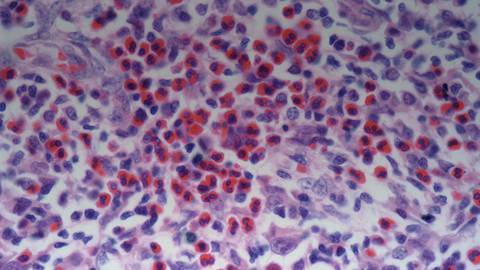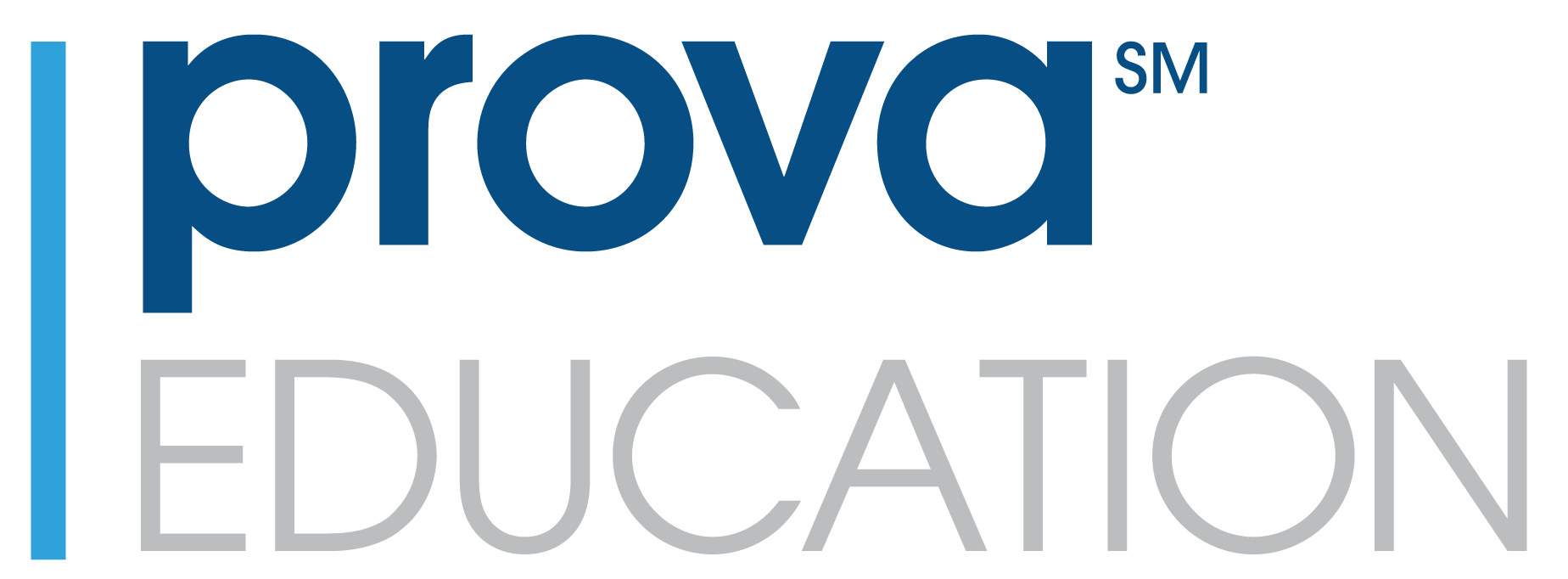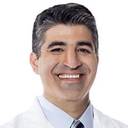Announcer:
Welcome to CME on ReachMD. This episode is part of our MinuteCME curriculum.
Prior to beginning the activity, please be sure to review the faculty and commercial support disclosure statements as well as the learning objectives.
Dr. Maddocks:
This is CME on ReachMD, and I’m Dr. Kami Maddocks. Here with me today is Dr. Matthew Matasar. We’re taking a closer look at the rationale and evidence for using bispecific antibodies in follicular lymphoma.
Dr. Matasar, what can you tell us?
Dr. Matasar:
Thanks, Dr. Maddocks. So clearly, the treatment of relapsed or refractory follicular lymphoma is in evolution. There are a number of FDA-approved agents now in this space, but it’s very important to recognize that new treatments may offer patients new opportunities. And particularly, I would bring your attention to the recent approval of mosunetuzumab. This is the first FDA-approved bispecific antibody in the treatment of B-cell lymphomas, and it was approved on the basis of a conducted single-agent study, which evaluated mosunetuzumab monotherapy in patients with relapsed or refractory follicular lymphoma in the third line and beyond. Mosunetuzumab in this study really demonstrated remarkable activity, with an overall response rate of approximately 80%, complete response rate of almost 60%, and really excellent durability with a median follow-up now in excess of 2 years, not yet having achieved the median progression-free survival or event-free survival in this heavily pretreated patient population. This is taken in context with its toxicity profile, which is really quite favorable. Certainly, in comparison to CAR T-cell therapy, this too being a T-cell-engaging treatment, really has much lower rates of the significant toxicities associated with T-cell-engaging treatments. Very low rates of CRS – cytokine release syndrome – largely grade 1 or grade 2, and occurring really during only the first cycle of step-up dosing, and really negligible rates of neurotoxicity.
There are a number of other bispecific antibodies in ongoing development, including epcoritamab, glofitamab, odronextamab, IGM-2323 and others. But it’s really clearly a very promising direction for our field, that we see the development of off-the-shelf T-cell-engaging therapies that we can offer our patients.
Dr. Maddocks:
Thank you, Dr. Matasar. So the bispecific antibodies, or T-cell engagers – the current ones that target CD20 on the B-cell by CD3 on the T-cell – have shown a lot of promise in relapsed/refractory follicular lymphoma. We’ve seen the studies with a handful of these agents, but currently we have 1 approved. This approval came in December of 2022, and that’s with the agent mosunetuzumab. This approval was because this agent showed very high efficacy in patients with relapsed/refractory follicular lymphoma, including high overall response rates and complete response rates. When looking at the ability for patients to receive this agent, it’s an off-the-shelf agent, so it’s easier for many patients to access than some of the other therapies like CAR T-cell therapy. Additionally, this agent showed less toxicity including less CRS, and while we don’t have as long a follow-up, we have seen that this agent thus far has shown pretty durable remissions. Other agents are currently being investigated in this area. So, this is a promising agent that has been added to our treatment for relapsed/refractory follicular lymphoma, and we look to the future, where we have potentially even more bispecifics available in this setting.
Well, this has been a great bite-sized discussion. Unfortunately, our time is up. Thanks for listening.
Announcer:
You have been listening to CME on ReachMD. This activity is provided by Prova Education and is part of our MinuteCME curriculum.
To receive your free CME credit, or to download this activity, go to ReachMD.com/Prova. Thank you for listening.


 In support of improving patient care, Global Learning Collaborative (GLC) is jointly accredited by the Accreditation Council for Continuing Medical Education (ACCME), the Accreditation Council for Pharmacy Education (ACPE), and the American Nurses Credentialing Center (ANCC) to provide continuing education for the healthcare team.
In support of improving patient care, Global Learning Collaborative (GLC) is jointly accredited by the Accreditation Council for Continuing Medical Education (ACCME), the Accreditation Council for Pharmacy Education (ACPE), and the American Nurses Credentialing Center (ANCC) to provide continuing education for the healthcare team.






Facebook Comments